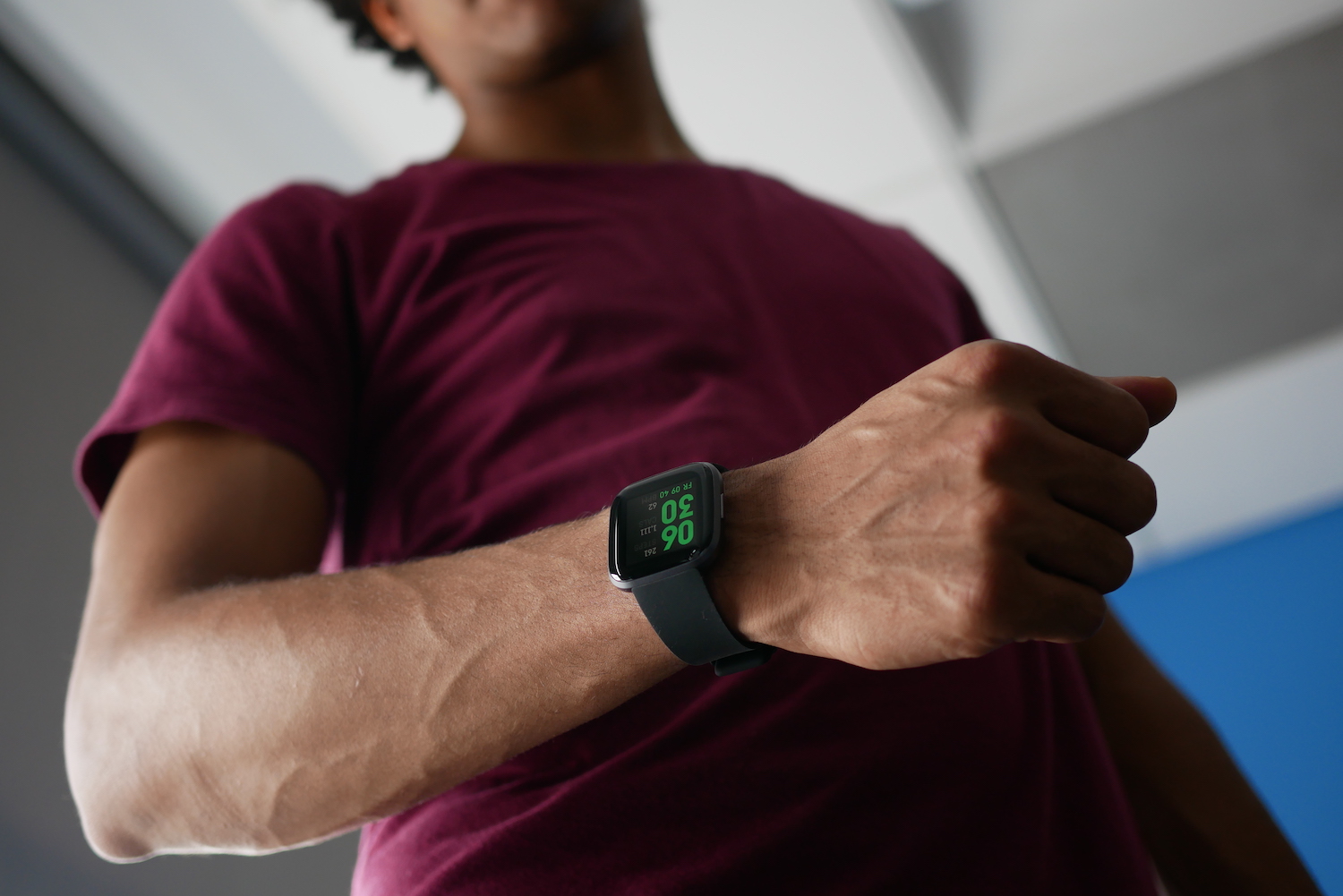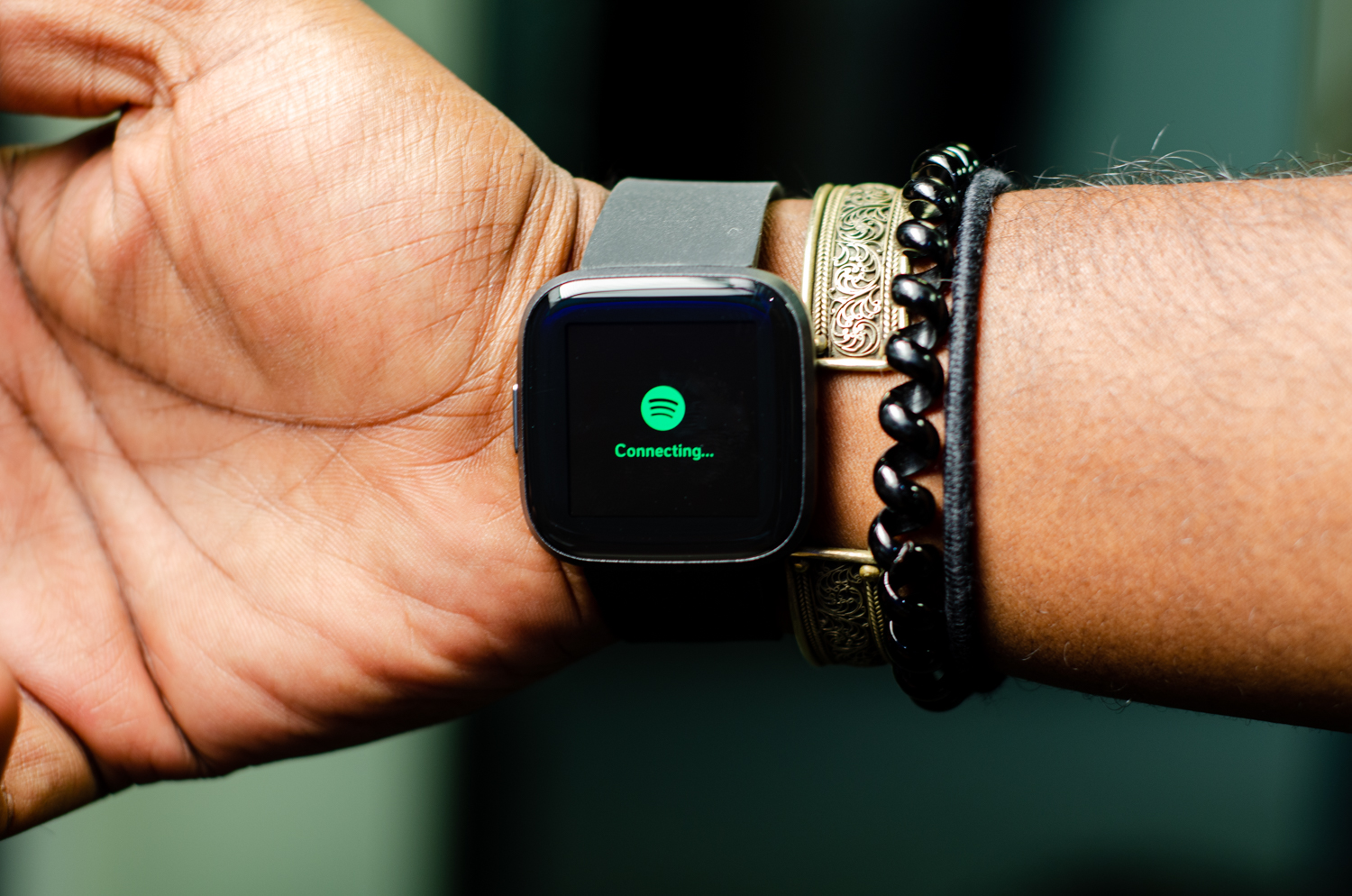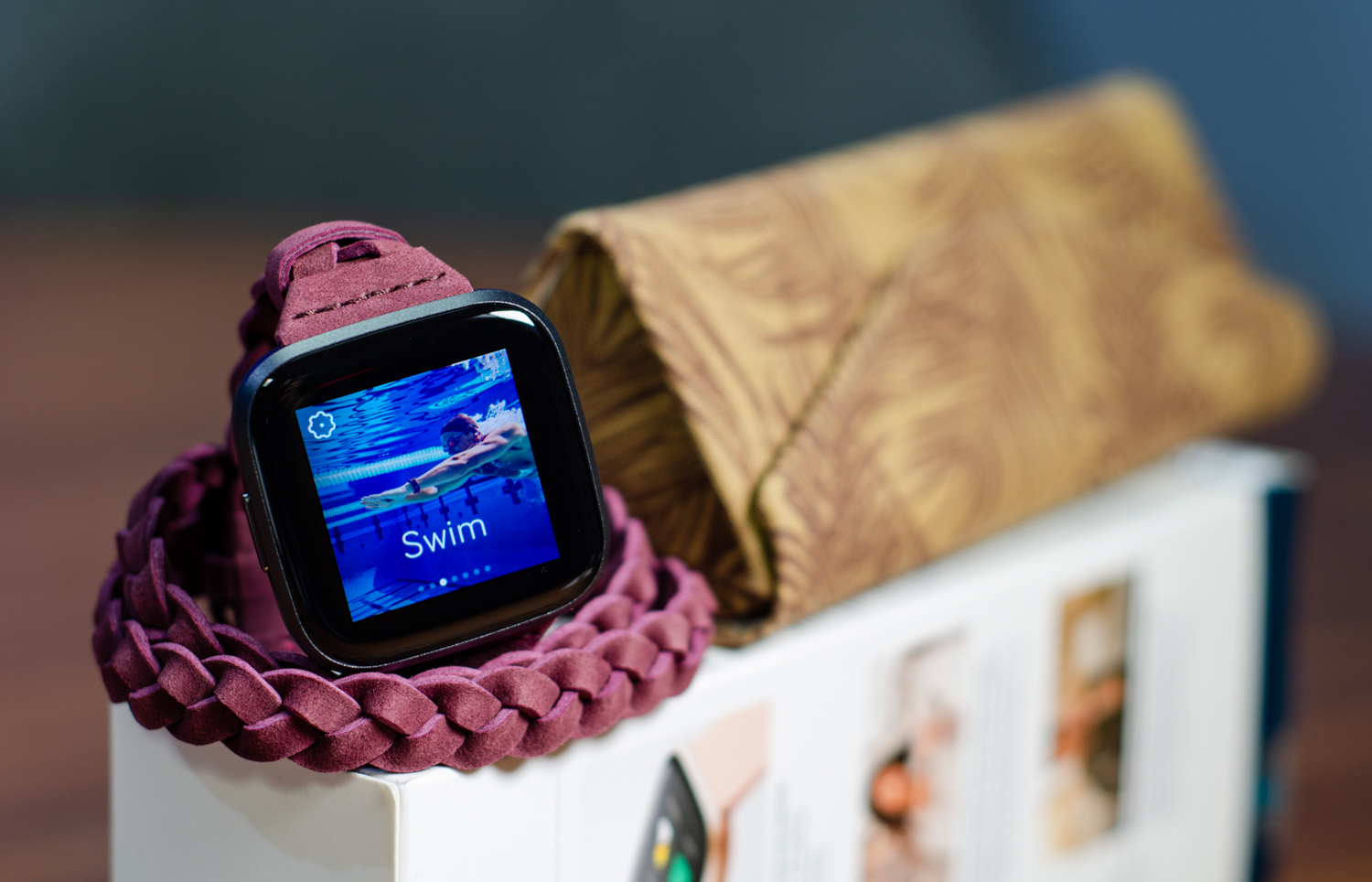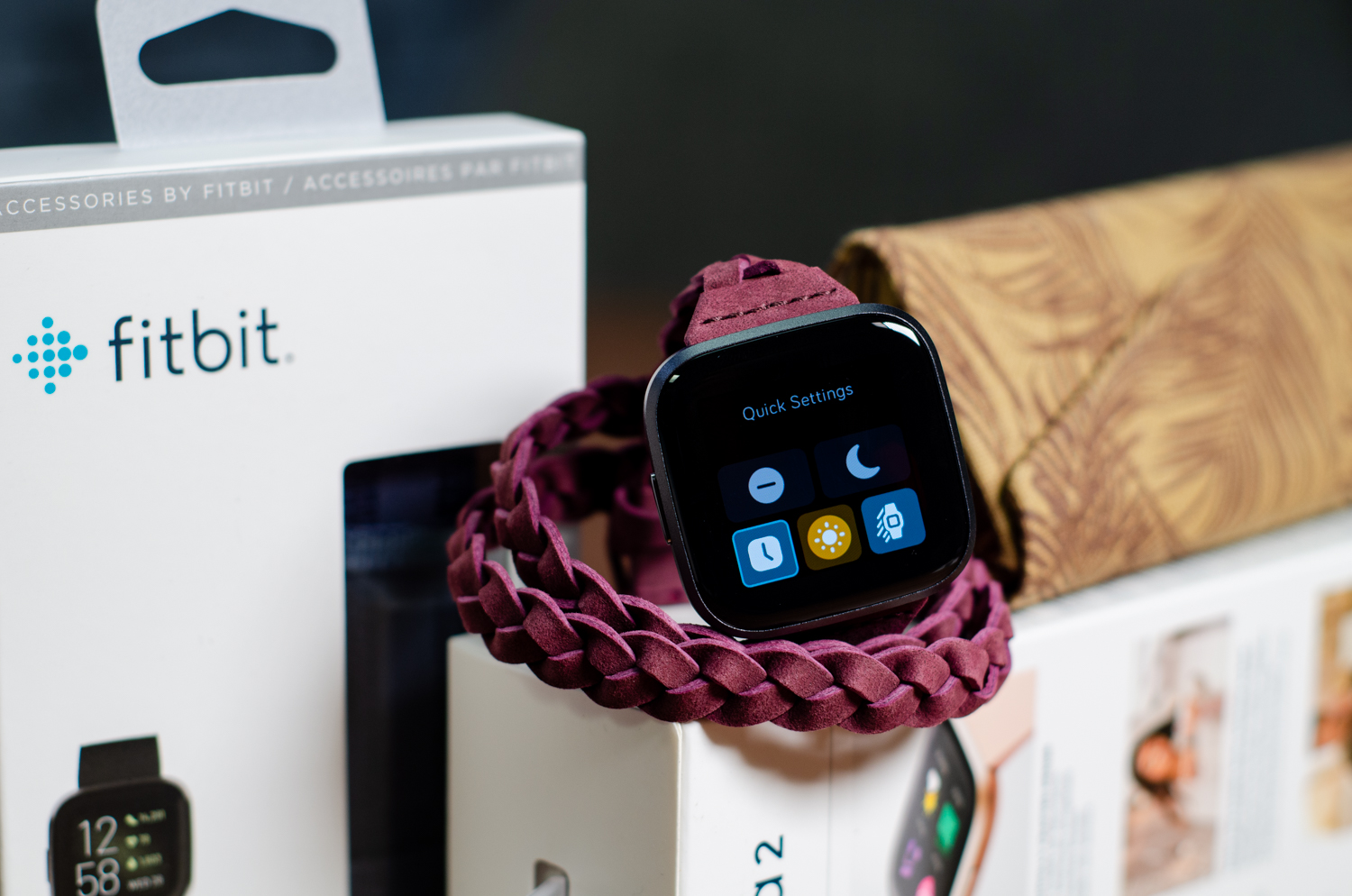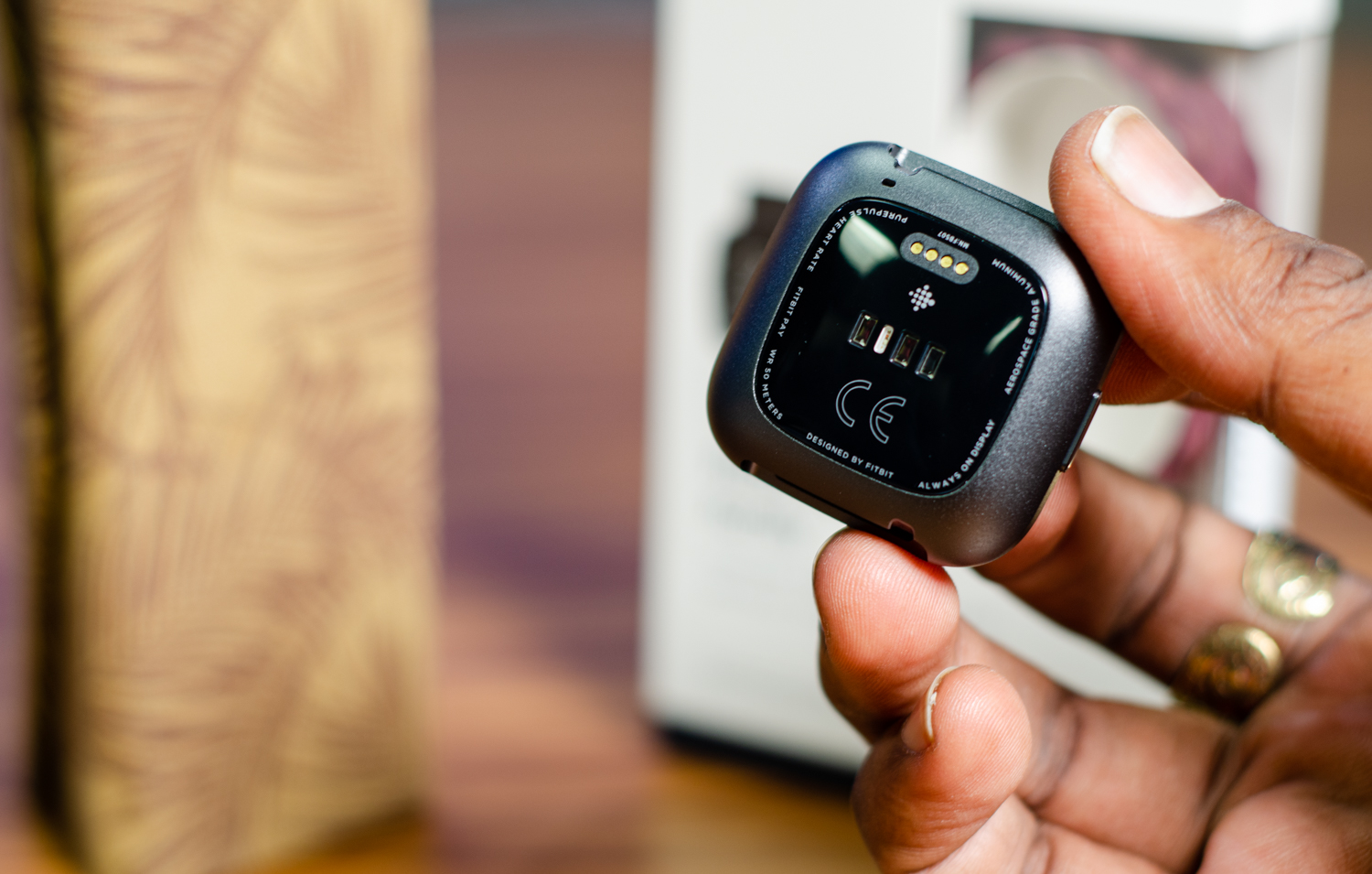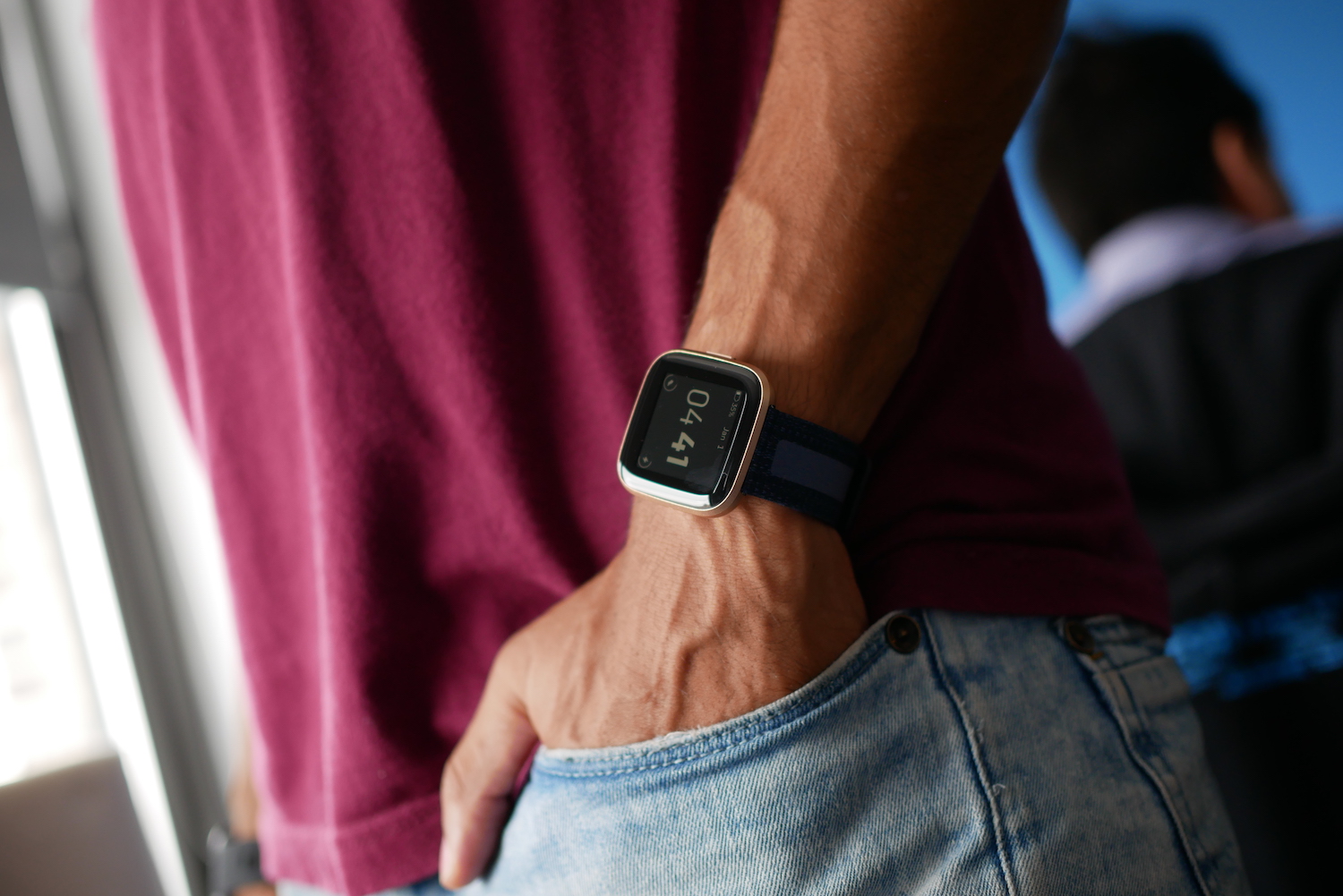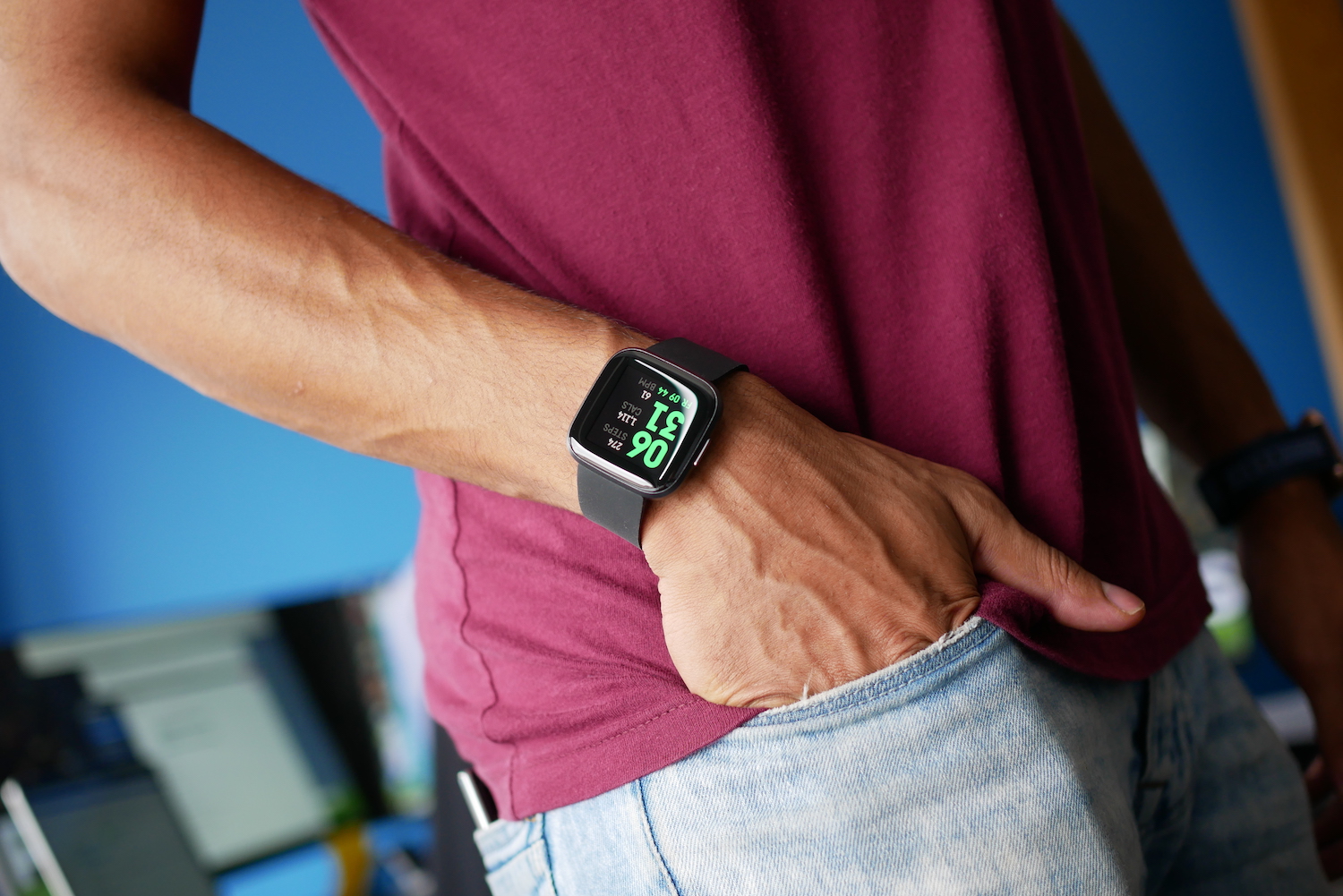
It’s not just about the hardware anymore for Fitbit. The company’s latest, the Versa 2 isn’t simply a successor to the popular Versa fitness band but also a platform for Fitbit Premium, a subscription-based coaching program to give you better insights into your activity and guidance.
Named for its smartwatch versatility, the Versa 2 adds Alexa and Spotify support — the quality-of-life upgrades we’ve been waiting for — as well as better battery life and sleep tracking. We’re certain to get a closer look at the band at IFA 2019, but for now, here’s everything you need to know about the Fitbit Versa 2.
An AMOLED display
Picking up the Versa 2, you won’t immediately notice many differences from its predecessor. One of the biggest changes is with the display; it now incorporates a Super AMOLED screen over the LCD used on the original Versa. It means you’ll get deeper blacks that help watch faces pop, as well as an always-on display option, which shows workout information or the time.

Although the Versa 2 looks a lot like its predecessor and carries similar specs like 50-meter water resistance and a Connected GPS sensor (it uses your phone’s GPS), becoming more seamless and fluid is the key theme. There’s now one button instead of three, which takes you home or back; the corners are a bit more rounded, as are the screen and back panel. The watch band also looks more uniform, showing no gap between the casing and itself. It’s hard not to say that, overall, it looks like a slightly wider Apple Watch, aside from the band style.
There are three main color options: Carbon, Copper Rose, and Grey Mist. There will also be a special edition with limited availability, which pairs a Copper Rose case with emerald and plum bands. All cases are crafted from aluminum and offer a variety of band options.
In the box, you’ll have the matching stain-resistant silicone colored bands, but options exist for perforated silicone bands, some woven with reflective stripes, leather, and suede options, along with a designer offering by Kim Shui, which features braided premium Horween suede. These all look much better than the included strap and a level of style lacking in the stock band. There’s even a strap option made by professional rescue company Recco, which uses its battery-less radar reflection technology to help map and find trekkers who may be lost.
New sleep features, Alexa, and Spotify control
Aside from the screen, there are upgrades to the processor inside, and Fitbit also said the Versa 2 is capable of battery life up to five days or more — that’s one more day than Fitbit’s claim of the original Versa. Fitbit Pay is also built-in: the NFC payment system lets you make contactless payments at supported merchants. Previously, this feature was relegated to the special edition version of the Fitbit Versa.
There’s also finally integration with Spotify, adding to the existing support for Deezer and Pandora. These music app integrations are strictly for controlling playback on another device, though, not streaming directly from the Versa 2. You can still manually load up your tunes to the Versa 2 — it can hold up to 300 songs.
Sleep tracking is getting a boost: using its years of sleep data and research, Versa 2 wearers can now get a proper sleep score with insights for better context. This takes into account your heart rate, movement, and time awake to show your sleep stages and duration, lending insight into why you may feel particularly energized (or not) on a given day. New too is a smart wake function, which aims to wake you up during a light sleep cycle within a specified time frame, as well as Sleep Mode, which turns off the screen and notifications before you go to sleep. Versa 2 owners will eventually be able to view blood-oxygen levels from their slumbers, which can indicate breathing variations throughout sleep.
Perhaps more interestingly, Fitbit took it upon itself to add a personal assistant to its smartwatch. No, Google Assistant and Samsung’s Bixby didn’t make the cut — just Amazon’s Alexa.
Fitbit Premium

Previously, Fitbit Coach offered Fitbit owners guided workouts and videos for $40 a year, but the newly launched Fitbit Premium service now offers a more expansive and tailored experience.
This service takes recommendations from organizations like the Centers for Disease Control and Prevention, the American Heart Association, as well as 10 years of Fitbit data and research (internal and external), melds it with your Fitbit data and goals, and offers personalized guidance and insights to improve your health.
Fitbit’s current focus is on improving eating, sleeping, and exercise habits, but the company said it’s looking to expand to keeping track of chronic conditions like diabetes and hypertension in the near future.
Fitbit Premium costs $10 a month or $80 annually, affording you the following:
- Sleep guidance: Includes reminders for better sleep hygiene, when to begin winding down and get to sleep, as well as a sleep score breakdown, which details quality, and shows how your life may be impacting your sleep and vice versa.
- Guided programs: This is a suite of nine programs, such as “Understanding Calories.” They give targeted goals (calories, steps, active minutes) along with day-by-day tips, motivation, and nudges, based on your sleep and activity. There will also be programs for specific categories like sleep, nutrition, or activity by the end of the year.
- Dynamic workouts: This library of hundreds of coaching videos is custom-tuned to your feedback. For instance, if you follow a program with 50 lunges and you say it was particularly hard, the next workout adjusts to build you up from a lower goal. These can include workouts for cycling, elliptical, gym workouts, or no equipment at all. There will also be third-party integrations with Daily Burn, Headspace, and Guidance Yoga Studio.
- Health Coaching: For an additional fee, you can be paired with a certified health and wellness coach to develop a plan based on your needs and Fitbit data. The coach consults with you, using your data as reference, and can access Fitbit’s network of clinical specialists to answer all your questions.
- Health Reports: Fitbit owners will be able to print out “premium wellness reports” based on their Fitbit data for use during doctor visits — specifically yearly physicals. The company is looking to add more targeted reports down the line to manage more specified, chronic conditions.
- Challenges: Challenges incorporates the Fitbit community, allowing you to work together with friends for a shared goal, such as steps in a week, or play “fitness bingo” which, based on your individual goals, creates a bingo board for you to compete with others. Some of these challenges are already freely available but aren’t unique to your goals and statistics as the premium option is.
- Advanced insights: Over time, the premium program will give you insights like “your resting heart rate has gone down, congratulations!” with an explainer giving more information on why that’s good.
There will be a one-week free trial period for current Fitbit device owners, but the additional Health Coaching cost may vary.
Fitbit Aria Air, a smart scale

But a new wearable and subscription service aren’t the only products the company announced. Fitbit also has a new affordable smart scale, the Fitbit Aria Air. The Aria Air offers integration with all of Fitbit’s devices and services and can calculate body mass index (BMI) to go alongside your other data.
It’s available for pre-order now and ships September 15 for $50.
Pricing and availability

A Fitbit Premium membership costs $10 a month or $80 annually and will roll out in September for the U.S., and later in the fall for 17 other English-speaking countries, with additional languages coming in 2020.
The Fitbit Versa 2 is available for pre-order now from Fitbit’s website, and it ships on September 15 for $200.
We’ll be testing it over the next few weeks to see if the upgrades make it an even better buy over the original Versa.
